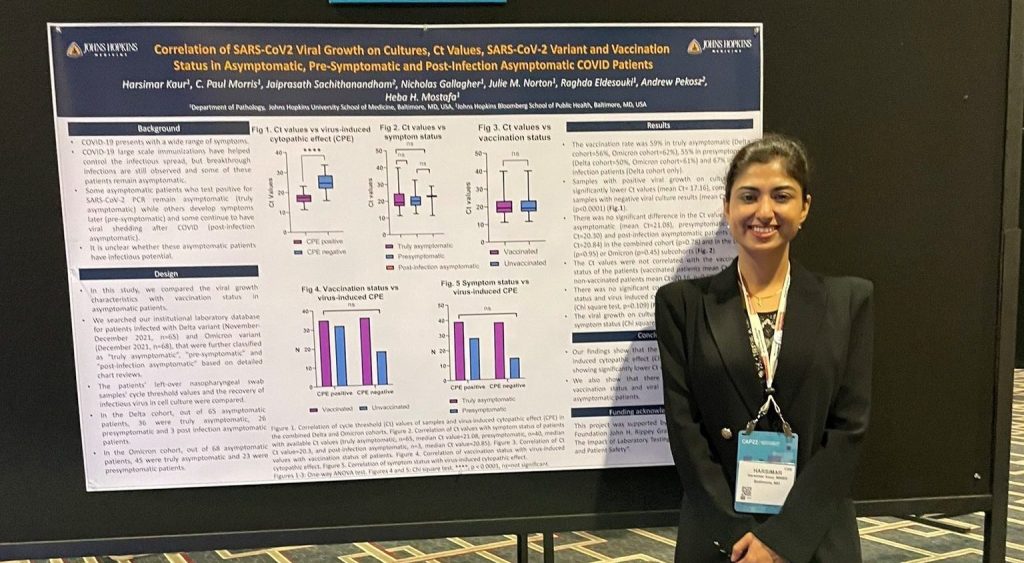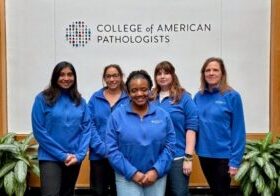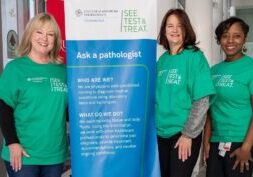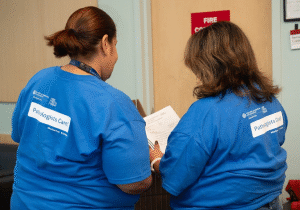Rippey Grant Funds COVID Research for Pathology Residents

In the spring of 2020 as the COVID-19 pandemic upended health care and put laboratories under strain, the CAP Foundation pivoted to support new research and studies on COVID-19 topics surrounding test accuracy, timeliness, and result communication.
The John H. Rippey Grant for Expedited Research was repositioned to help investigate and support laboratory initiatives related to COVID-19. Since 2020, six CAP members used the grant for a wide-ranging number of initiatives at their laboratories, all leading to a better understanding of COVID-19 testing and ultimately better patient care.
Annual Meeting Winner
Harsimar Kaur, MBBS, a 2021 grant recipient, worked with her laboratory team at Johns Hopkins University to develop a COVID-19 study on viral growth that ultimately led to an abstract “Correlation of SARS-CoV-2 Viral Growth on Cultures, Cycle Threshold Values, and Symptom Status in Asymptomatic, Presymptomatic, and Postinfection Asymptomatic COVID Patients.”
Dr. Kaur’s findings showed that SARS-CoV-2 acquired different transmissible properties as the virus mutated, leading to variety in the level of symptoms shown by patients as well as their vulnerability to infection. The abstract was presented at the CAP22 annual meeting claiming top prize in the Junior Member abstract program and was published in Archives of Pathology & Laboratory Medicine.
Kidney Transplants and COVID
Yayuan Zhao, MD, PhD, received a grant from the CAP Foundation in 2022 to investigate outcomes of COVID-19 vaccine recipients who had also received a kidney transplant. According to Dr. Zhao and his team of investigators at the University of Saskatchewan, kidney transplant recipients are at a higher risk of infection than the general population, including for having a more severe infection and risk of death when contracting COVID-19.
As such the team wanted to investigate “concerns that vaccination may trigger immune reactivation in both waitlisted patients and transplant recipients with deleterious effects on their clinical course and/or risk of rejection.” Their study aimed to determine the risk of developing certain antibodies that could lead to a false transplant match after COVID vaccination and correlate the development of these antibodies with the levels of anti-COVID antibodies produced by vaccination.
While Dr. Zhao and his team continue their research, they are confident that it will help provide an in-depth understanding of the side effects of COVID vaccination in patients waiting for kidney transplants and post-transplant patients. “This has not been previously studied to the best of our knowledge, and it will provide new guidelines for two groups of patients,” he said.
What Can be Learned from Cycle Threshold Values?
Researchers at the Ohio State University Wexner Medical Center also wanted to find more reliable ways to determine COVID patients’ symptom severity through laboratory medicine, in particular the cycle threshold (Ct) values. Their team ultimately confirmed that Ct values can provide important information to support clinical decisions and determine the infectivity of the virus.
Saba Shafi, MD, said, “Our work will be the first of its kind to assess the role of Ct
value as a proxy for infectivity in a large academic institution and whether it can inform and support decisions on treatment and subsequent control of the pandemic.”
Not only did this research support COVID research now and over the past several years, but it helps clinicians prepare for future virus outbreaks and pandemics. All three of these grant recipients were also pathology residents, providing vital hands-on experience that is sure to progress their career and significantly enhance their knowledge for the good of patient care.
Learn more about the other awards and grants funded by the CAP Foundation, and find out how you can support these initiatives.
More Stories
Why Donate
Every person deserves a diagnosis. Support care beyond the microscope. Expand access to pathology-locally and globally.










